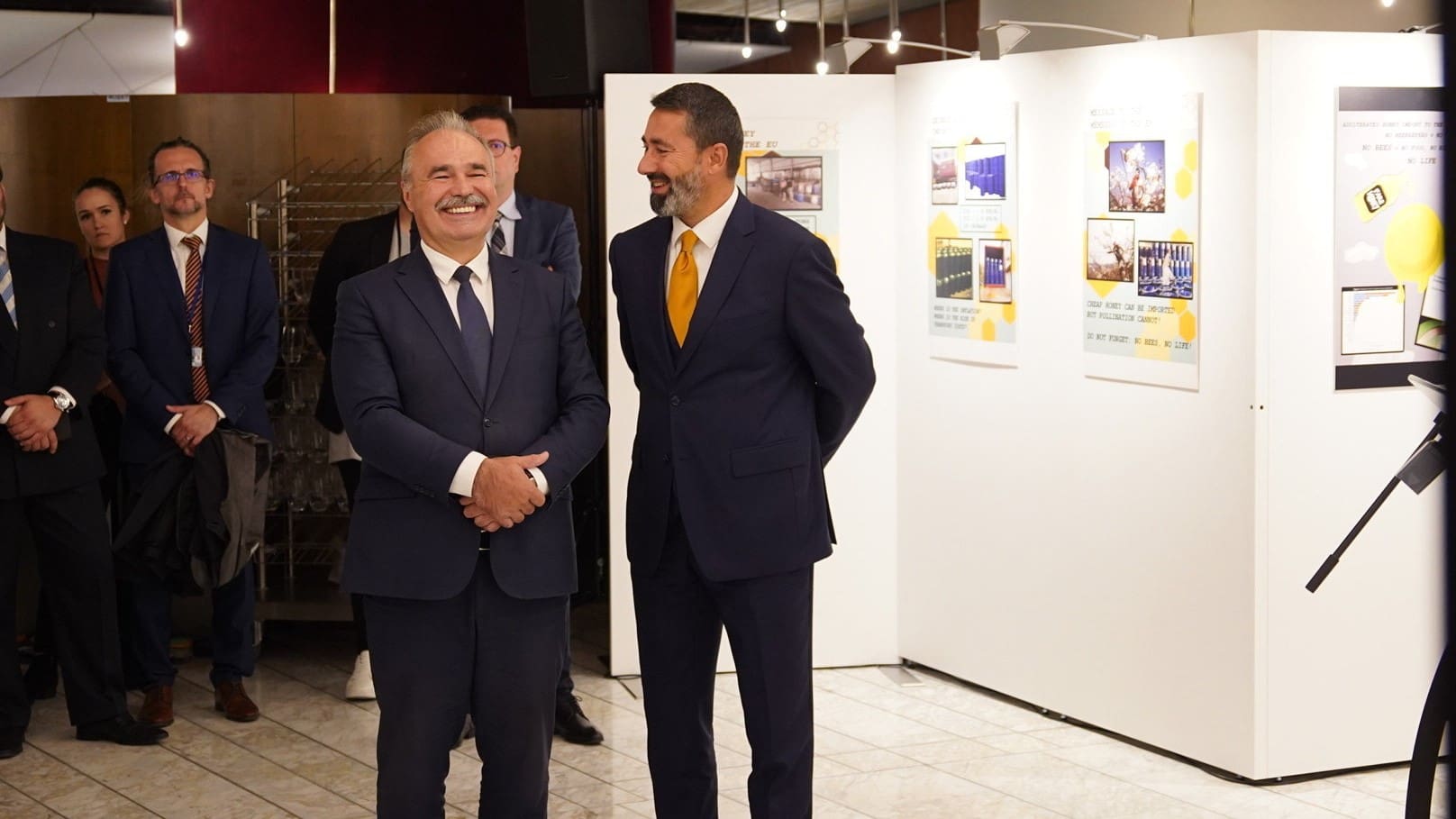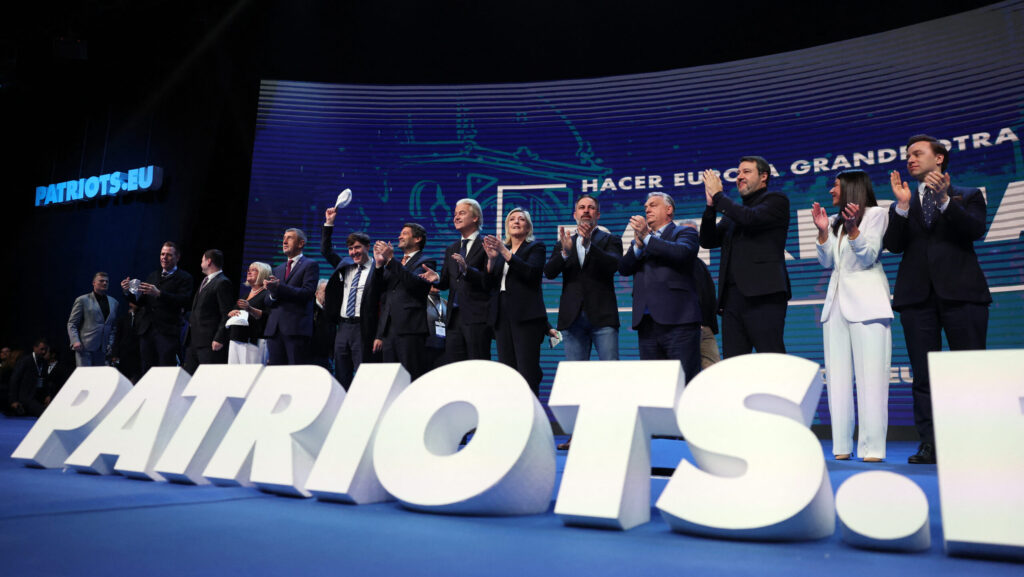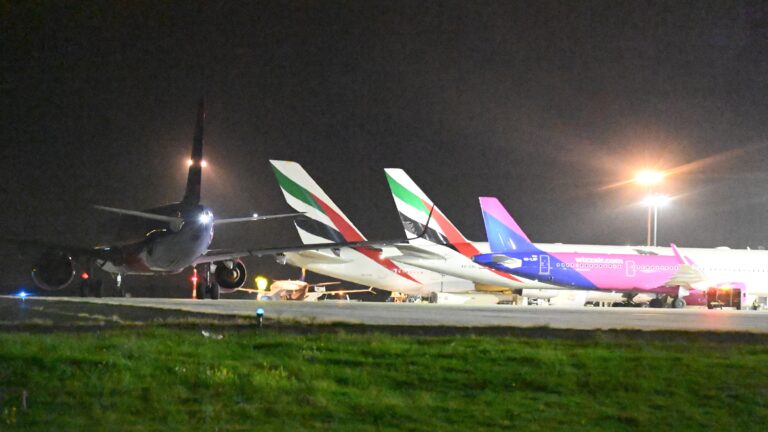The important role played by Hungarian and European beekeepers was highlighted by Hungary’s Minister of Agriculture, István Nagy, and Fidesz MEP Balázs Hidvéghi in Strasbourg on Monday. During the event organized by Mr Hidvéghi, beekeeping activities were also showcased.
At the exhibition organized in collaboration with the National Hungarian Beekeeping Association, István Nagy emphasized that currently only 0.1 per cent of the EU’s Common Agricultural Policy budget is allocated for supporting the beekeeping sector. This, in his view, does not demonstrate that Brussels considers this sector to be important. He stressed the need to introduce direct support for beekeeping as soon as possible.
In his speech, the minister pointed out that Hungarian honey competes with honey produced in third countries. Due to various market-distorting actions by the EU, the honey market is highly unfavourable for European Union, including Hungarian, producers. He stated that EU investigations have also shown that
most adulterated honey originates from China, but the EU has not imposed any sanctions,
allowing fake honey to continue circulating.
Regarding this issue, Balázs Hidvéghi drew attention to the fact that the EU markets have been flooded with cheap Chinese syrupy honey. Last year, 67,000 tons of chemically produced counterfeit honey entered the EU, and it was sold at half the price of European producers, putting farmers in a precarious situation.
The MEP opined that the European Commission does not represent the interests of Hungarian and European beekeepers. He argued that a legal framework must be established that safeguards the interests of Hungarian and European beekeepers and protects consumers. He added that European citizens should be encouraged
to buy not cheap, low-quality honey, but domestic honey, preferably from small-scale producers.
Proper honey labelling is also essential, and it is important that labels indicate the exact country of origin and composition of the honey. Hidvéghi stated that it should not be allowed that external actors dominate the European market and impose their low-quality products on citizens. The Fidesz MEP also pointed out that Hungary is one of the leading honey-producing countries in Europe, and Hungarian people continue to prefer high-quality domestic honey.
He also recalled that Norbert Erdős, a former Fidesz Member of the European Parliament, was the author of a report on the prospects and challenges of the European Union’s beekeeping sector, which was adopted by the European Parliament with overwhelming support. The Erdős report paid particular attention to combating fake honey from third countries, to honey labelling, increasing EU support for beekeepers, and banning pesticides that are truly harmful to bees. He reminded that the European Commission barely took this report into account, and only a few partial solutions were developed in response.
Related articles:
Sources: Hungarian Conservative/Fidesz European Parliamentary Group/MTI








